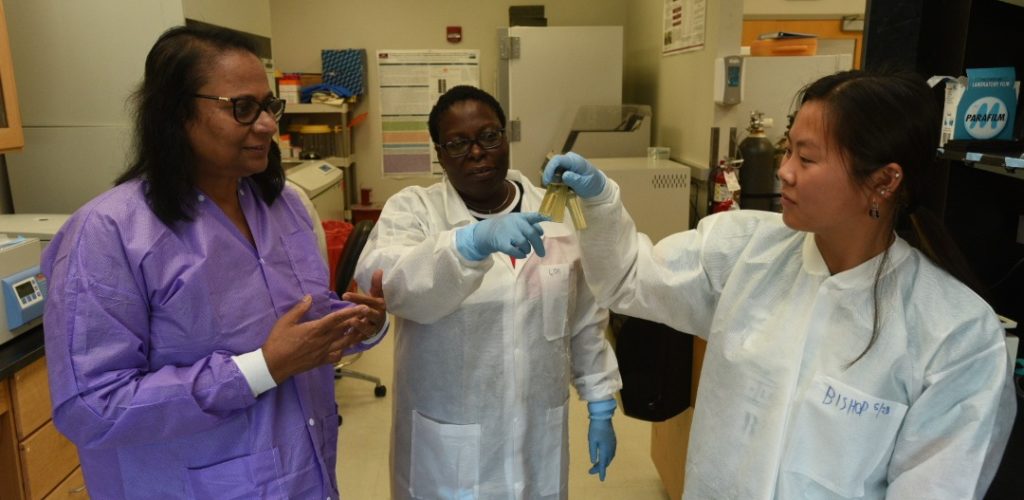17 Jul Grants 201: Prospect Research
Posted at 10:45h
in Competency One, Competency Two, Courses, GPCI Competencies, Grants 201, How-To, Julie Assel, GPC, Research, Uncategorized
Grants 201: Prospect Research Session 1 of the Grants 201 Series Identifying grant-funding sources is just the first step in the research process. This session will teach you how to qualify your research and create a grant calendar that focuses on your best prospects. This session will...
01 Jul Funding Alert! Training Opportunities for Nursing
Health Resources and Services Administration Attention institutions of higher education, community-based healthcare organizations, elected officials, and school districts! The Health Resources and Services Administration (HRSA) has various upcoming opportunities for healthcare professional training programs. While the specific goals of these programs differ, the overarching goal is to provide equitable health care to people who are geographically isolated and economically or medically vulnerable. This announcement features three forecasted opportunities specifically focused on nursing for rural and underserved communities. Upcoming posts throughout July will feature opportunities for training related to nursing, residency, secondary education outreach, and substance abuse. About the agency HRSA programs provide equitable health care to people who are geographically isolated and economically or medically vulnerable. This includes programs that deliver health services to people with HIV, pregnant people, mothers and their families, those with low incomes, residents of rural areas, American Indians and Alaska Natives, and those otherwise unable to access high-quality health care. HRSA programs also support health infrastructure, including through training of health professionals and distributing them to areas where they are needed most, providing financial support to health care providers, and advancing telehealth. In addition, HRSA oversees programs for providing discounts on prescription drugs to safety net providers, facilitating organ, bone marrow, and cord blood transplantation, compensating individuals injured by vaccination, and maintaining data on health care malpractice payments. As part of a series, funding Friday will highlight HRSA opportunities focused on training for the healthcare workforce, both available and forecasted. This week starts with training opportunities for nursing, managed by the Division of Nursing and Public Health, featuring the following forecasted opportunities currently projected with January 2023 deadlines:- Nurse Faculty Loan Program (NFLP), focuses on increasing the number of qualified nursing faculty nationwide by funding accredited schools of nursing to establish and operate a student loan fund for students enrolled in advanced education nursing degree programs and who are committed to become nurse faculty.
- Advanced Nursing Education Workforce (ANEW), supports academic clinical partnerships that educate and graduate primary care Nurse Practitioners, clinical nurse specialists, and nurse midwives who are academically and clinically prepared for transition to practice in rural and underserved communities. The goal of the program is to increase access to needed primary medical care for these populations.
- Nurse Anesthetist Traineeships (NAT), aims to increase the number of new Certified Registered Nurse Anesthetists nationwide and to prepare them to provide care and practice in rural and underserved communities.
24 Jun Funding Alert! Grants for Research Experiences for Undergraduates
National Science Foundation (NSF) Attention educators, researchers, institutions of higher education (IHEs), and students in the science, technology, engineering, and mathematics (STEM) fields! NSF is now accepting proposals to its Research Experiences for Undergraduates (REU) program. The REU program supports active research participation by undergraduate students in any of the areas of research funded by NSF. The goal of the program is to increase the participation of underrepresented student groups in research by involving students who might not otherwise have the opportunities. The two types of support for student research are REU Sites and REU Supplements. Applications for this program are due September 6, 2022.17 Jun Funding Alert! Urban Agriculture and Innovative Production
Competitive Grants Program U.S. Department of Agriculture – Natural Resources Conservation Service Does your organization work to improve local food access? Do you work with food gardens, rooftop farms, green walls, or other urban or innovative agricultural practices? If you answered yes to either question, then check out this great opportunity from the United States Department of Agriculture (USDA). The Natural Resources Conservation Service under the Office of Urban Agriculture and Innovative Production agency recently announced grants to support the development of urban agriculture and innovative production. The two types of UAIP grants being made available for application under this NFO are Planning Projects and Implementation Projects. Applications for this program are due August 8, 2022.10 Jun Funding Alert! Housing Preservation Grants for Rural Development
United States Department of Agriculture – Rural Housing Service Does your organization provide housing to individuals in rural communities or assist rural communities in recovering economically from COVID-19 impact? If you answered yes to either question, then check out this great opportunity from the United States Department of Agriculture (USDA). The Rural Housing Service, a Rural Development (RD) agency of the USDA, recently announced grants to support organizations with repair or rehabilitation of housing for low-income rural residents. Applications for this program are due July 11, 2022.02 Jun Funding Alert! Education Innovation and Research (EIR) Program Early Phase Grants
Department of Education – Office of Elementary and Secondary Education Attention institutions of higher education awarding Federal Pell Grant funds! The Department of Education (ED) – Office of Elementary and Secondary Education (OESE) is accepting applications for EIR program expansion tier. This program provides funding to create, develop, implement, replicate, or take to scale entrepreneurial, evidence-based, field-initiated innovations to improve student achievement and attainment for high-need students while rigorously evaluating innovations. The EIR has three grant tiers: early-phase, mid-phase, and expansion, with the expectation that projects will advance through the tiers. This opportunity is specifically for the early-phase tier.25 May Funding Alert! Child Care Access Means Parents in School Program Grants
Department of Education – Office of Postsecondary Education Attention institutions of higher education awarding Federal Pell Grant funds! The Department of Education (ED) – Office of Postsecondary Education is accepting applications for the Child Care Access Means Parents in School (CCAMPIS) Program. Rising childcare costs and reduced capacity of the Early Childhood Education sector to provide childcare due, in part, to workforce shortages, are causing families to choose between school and work. Poverty reduces a student’s opportunity to enter, persist, and complete higher education. Students from low-income backgrounds are more likely to delay enrollment, enroll in college part-time, or drop out. This program supports low-income parents enrolled in postsecondary education by providing campus-based childcare services.19 May Funding Alert! Basic Center Program Grants for Runaway and Homeless Youth
Department of Health and Human Services – Administration for Children & Families (ACYF) Attention organizations and communities working to end youth homelessness, adolescent pregnancy, and domestic violence! The Department of Health and Human Services (HHS) - Administration on Children, Youth and Families (ACYF) and Family and Youth Services Bureau (FYSB)’s Runaway and Homeless Youth (RHY) Program is accepting applications for the basic center program (BCP), which will provide temporary shelter and counseling services to youth who have left home without the permission of parents or guardians, have been forced to leave home, or homeless youth who might otherwise end up in law enforcement custody or child welfare or juvenile justice systems. This program was created in response to a growing concern for youth in need of long-term, supportive assistance that emergency shelter programs were not equipped to provide.09 May Funding Alert! DOJ STOP School Violence Program Grants
The Department of Justice has announced nearly $126 million to address school violence. The Students, Teachers, Officers Preventing (STOP) School Violence Grant Program is designed to provide the students and teachers with the tools they need to recognize, respond quickly to, and help prevent acts of...










